The Burning Times is a canadien film of genre Documentary
The Burning Times (1990)
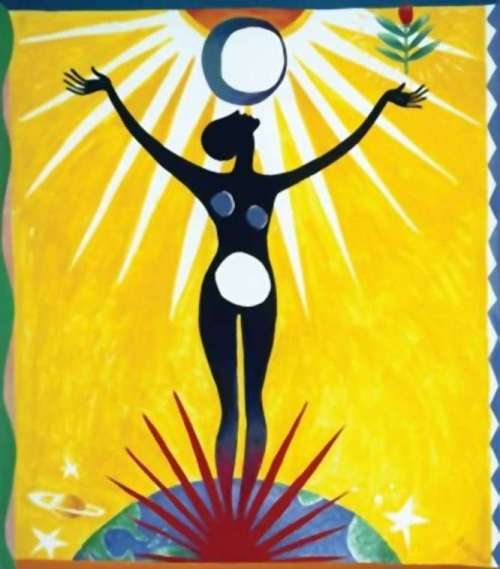
If you like this film, let us know!
- Infos
- Casting
- Technical infos
- Photos
- Videos
- Film quotes
- Characters
- Music
- Awards
Length 56minutes
OriginCanada
Genres Documentary
Themes Feminist films, Documentary films about law, Documentaire sur une personnalité, Political films
Rating76%










The Burning Times is a 1990 Canadian documentary, presenting a feminist account of the Early Modern European witchcraft trials.
It was directed by Donna Read and written by Erna Buffie, and features interviews with feminist and Neopagan notables, such as Starhawk, Margot Adler, and Matthew Fox. The Burning Times is the second film in the National Film Board of Canada's Women and Spirituality series, following Goddess Remembered and preceding Full Circle.
The opening and closing theme music, composed by Loreena McKennitt, was released as the track titled "Tango to Evora" on her album "The Visit".
Comments
Leave comment :
Suggestions of similar film to The Burning Times
There are 8968 with the same cinematographic genres, 10057 films with the same themes (including 3 films with the same 4 themes than The Burning Times), to have finally 70 suggestions of similar films.If you liked The Burning Times, you will probably like those similar films :
 , 1h27
, 1h27Origin Canada
Genres Documentary
Themes Feminist films, Documentary films about law, Documentaire sur une personnalité, Documentary films about politics, Political films
Rating62%





The documentary combines archival material with contemporary stories, juxtaposing scenes from the 1967 Royal Commission on the Status of Women with the 2nd Pan-Canadian Young Feminist Gathering in 2011 in Winnipeg, organized by the rebELLEs movement. It explores the progress made on concerns raised 45 years ago: universal childcare, violence against women and abortion access.
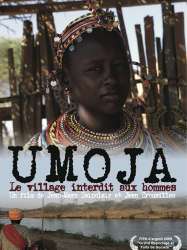 , 52minutes
, 52minutesGenres Documentary
Themes Films set in Africa, Feminist films, Politique, Documentary films about law, Documentaire sur une personnalité, Political films
Ce documentaire raconte l'histoire d'un village kényan, Umoja. Pendant près de 30 ans, des centaines de femmes vivant à Umoja disent avoir été violées par des soldats britanniques dans le nord du Kenya. Accusées d'avoir apporté la honte sur leur communauté, elles se font battre et répudier par leur maris. Une poignée d'entre elles créent Umoja, un village interdit aux hommes qui devient le refuge des femmes samburu. Des hommes jaloux attaquent régulièrement le village et posent des problèmes à sa fondatrice Rebecca Lolosoli.
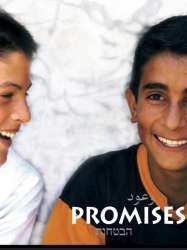
Promises (2001)
, 1h46Directed by Justine Shapiro, Carlos Bolado
Origin USA
Genres Documentary
Themes Films set in Africa, Films about children, Films about religion, Documentary films about law, Documentary films about war, Documentary films about historical events, Documentaire sur une personnalité, Documentary films about politics, Documentary films about religion, Political films, Films about Jews and Judaism
Rating82%





Ce film documentaire donne la parole à sept enfants juifs et palestiniens, âgés entre 9 et 13 ans. Ils donnent leur vision sur le conflit israélo-palestinien.

At the Green Line (2005)
, 52minutesOrigin Israel
Genres Documentary
Themes Films set in Africa, Films about religion, Documentary films about law, Documentary films about war, Documentary films about historical events, Documentaire sur une personnalité, Documentary films about politics, Documentary films about religion, Political films, Films about Jews and Judaism
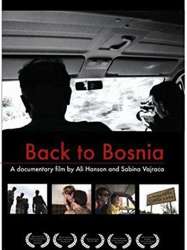
Back to Bosnia (2005)
, 1h15Directed by Sabina Vajrača
Genres War, Documentary
Themes Films about immigration, Documentary films about law, Documentary films about historical events, Documentaire sur une personnalité, Political films
Rating76%





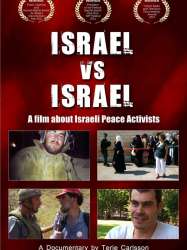
Israel vs Israel (2010)
, 58minutesGenres Documentary
Themes Films set in Africa, Films about religion, Documentary films about law, Documentary films about war, Documentary films about historical events, Documentaire sur une personnalité, Documentary films about politics, Documentary films about religion, Political films, Films about Jews and Judaism
Rating72%






Bosnia Diaries (2006)
, 1h17Directed by Joaquim Sapinho
Origin Portugal
Genres Documentary
Themes Films about immigration, Documentary films about law, Documentaire sur une personnalité, Political films
Rating60%






Terror's Advocate (2007)
, 2h15Directed by Barbet Schroeder
Origin France
Genres Documentary
Themes Films about terrorism, Documentary films about law, Documentary films about war, Documentary films about historical events, Documentaire sur une personnalité, Documentary films about politics, Documentary films about terrorism, Political films
Actors Barbet Schroeder
Rating70%





Jacques Vergès est né « colonisé » (selon ses propres termes) en 1925 à Ubone au Siam, dans l'actuelle Thaïlande(ou en 1924). Sa mère est vietnamienne et son père est réunionnais, consul de France au Siam au moment de sa naissance.

Son of al Qaeda (2004)
Origin Canada
Genres Documentary
Themes Films about terrorism, Documentary films about law, Documentary films about war, Documentary films about historical events, Documentaire sur une personnalité, Documentary films about politics, Documentary films about terrorism, Political films
Rating26%






Witness to Apartheid (1986)
, 58minutesDirected by Kevin Harrington
Origin USA
Genres Documentary
Themes Films set in Africa, Films about racism, Documentary films about racism, Documentary films about law, Documentaire sur une personnalité, Documentary films about politics, Political films
Rating68%





 Connection
Connection